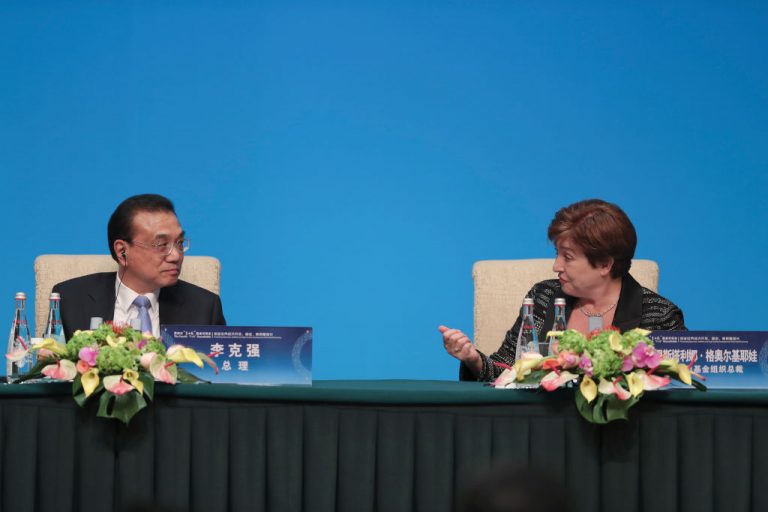The executive board of the International Monetary Fund (IMF) met on Oct. 8 to discuss the fate of incumbent Managing Director Kristalina Georgieva following a controversy linked to communist China. However, the meeting was adjourned without a clear resolution. The IMF said that a decision on the matter will be made “very soon.”
Last month, law firm WilmerHale submitted an investigative report to the World Bank in which it alleged that Georgieva had misused her position as the World Bank CEO in 2017 to communist China’s benefit. She is alleged to have placed “undue pressure” on staff at the bank to use data in a way that presented communist China in a favorable light on the organization’s flagship “Doing Business” report. The World Bank had announced that it was stopping the publication of the “Doing Business” report after the WilmerHale investigation.
In a statement to the IMF executive board on Oct. 6, Georgieva rejected the claims made in WilmerHale’s report. Georgieva accused WilmerHale of mischaracterizing her actions. Her lawyer, Lanny Breuer of Covington & Burling, said that the report drew “inappropriate and unsupportable inferences.”
“The Executive Board remains committed to a thorough, objective, and timely review… While the Board has made significant progress in its assessment, it agreed at today’s meeting to request more clarifying details with a view to very soon concluding its consideration of the matter,” the IMF’s governing body said in the statement about the Oct. 8 meeting.
Since the WilmerHale report was revealed to the public, Georgieva has garnered quite a bit of support. Earlier this week, 16 African nations released a statement in her favor. According to a Reuters report, France, Britain, Germany, and Italy are apparently backing her as well. The support of European nations is critical to Georgieva since the IMF has traditionally appointed a chief chosen by the European governments. When she became the head of IMF in 2019, Georgieva became the first person from a developing economy at the post.
Success
You are now signed up for our newsletter
Success
Check your email to complete sign up
Joseph Stiglitz, a former chief economist at the World Bank, believes that Georgieva is being targeted by conservative forces as she financially supported developing nations far more than her predecessors. He accused the WilmerHale report of being used unfairly to “discredit and oust” Georgieva. “Having read the WilmerHale report, having talked directly to key people involved, and knowing the whole process, the investigation appears to me to be a hatchet job,” Stiglitz said.
The U.S. Treasury has not commented after the IMF meeting. The Treasury has a 16.5 percent stake in IMF’s shares. A spokesperson from the department had earlier said that the Treasury has pushed for a “thorough and fair accounting” of all the facts of the case.
Anne O. Krueger, a former World Bank chief economist and former first deputy managing director of the IMF, wrote an article for Project Syndicate; she stated that Georgieva should resign. If she does not, the credibility of the organization will be affected.
“Should Georgieva remain in her position, she and her staff will surely be pressured to alter other countries’ data and rankings. And even if they resist, the reports they produce will be suspect. The entire institution’s work will be devalued. That prospect alone should be enough for the IMF’s political masters to find a new managing director whose commitment to the integrity of the work is not in question,” Krueger wrote.















